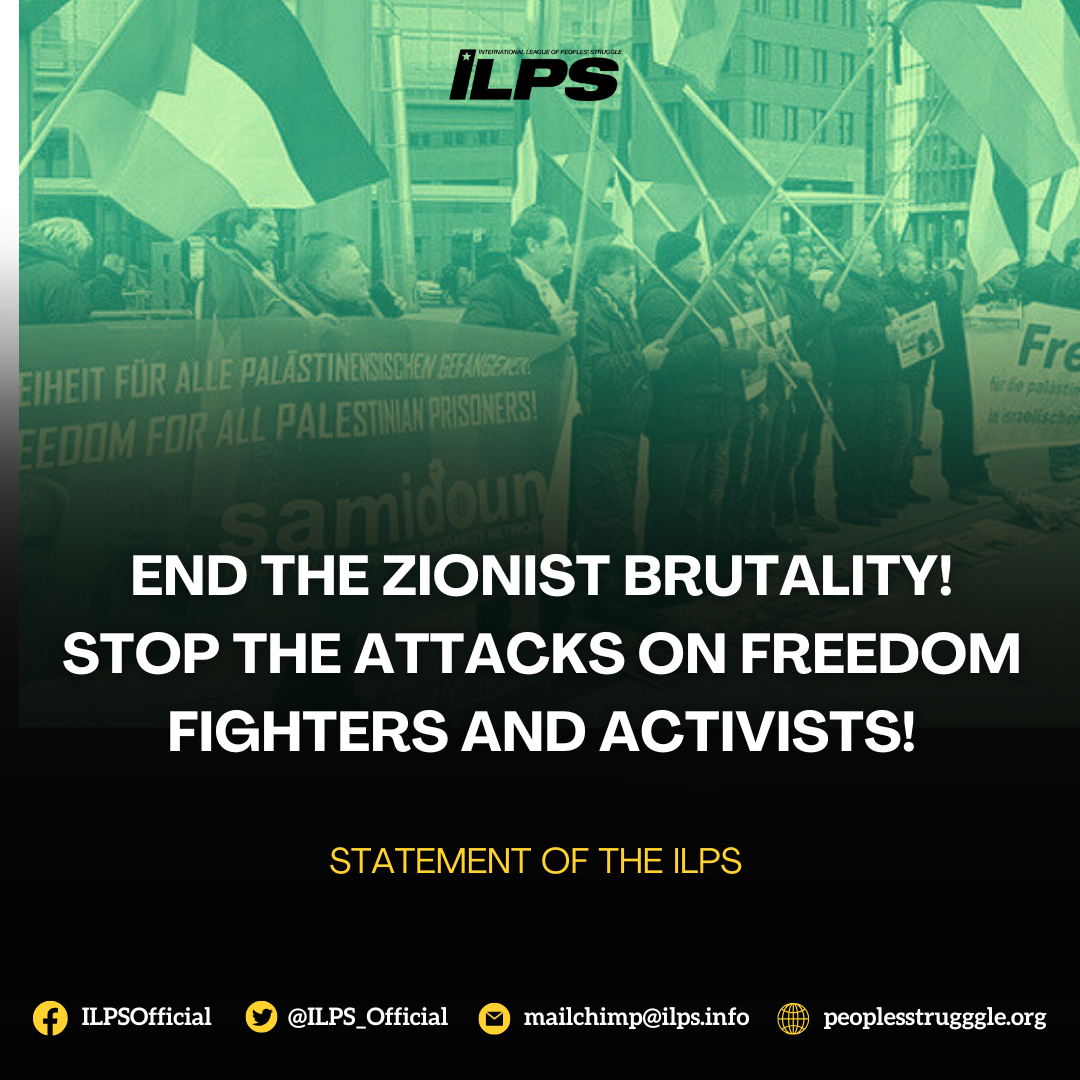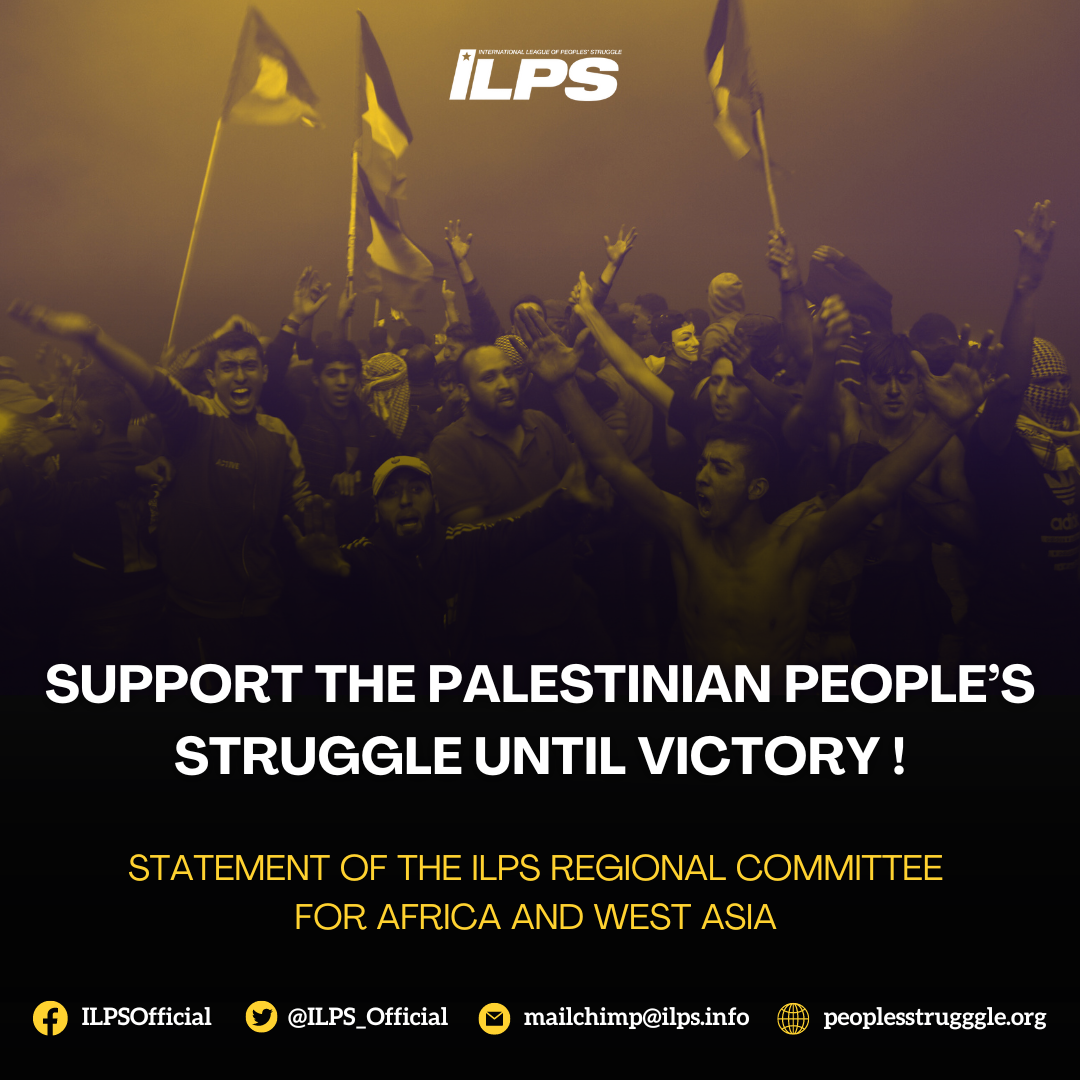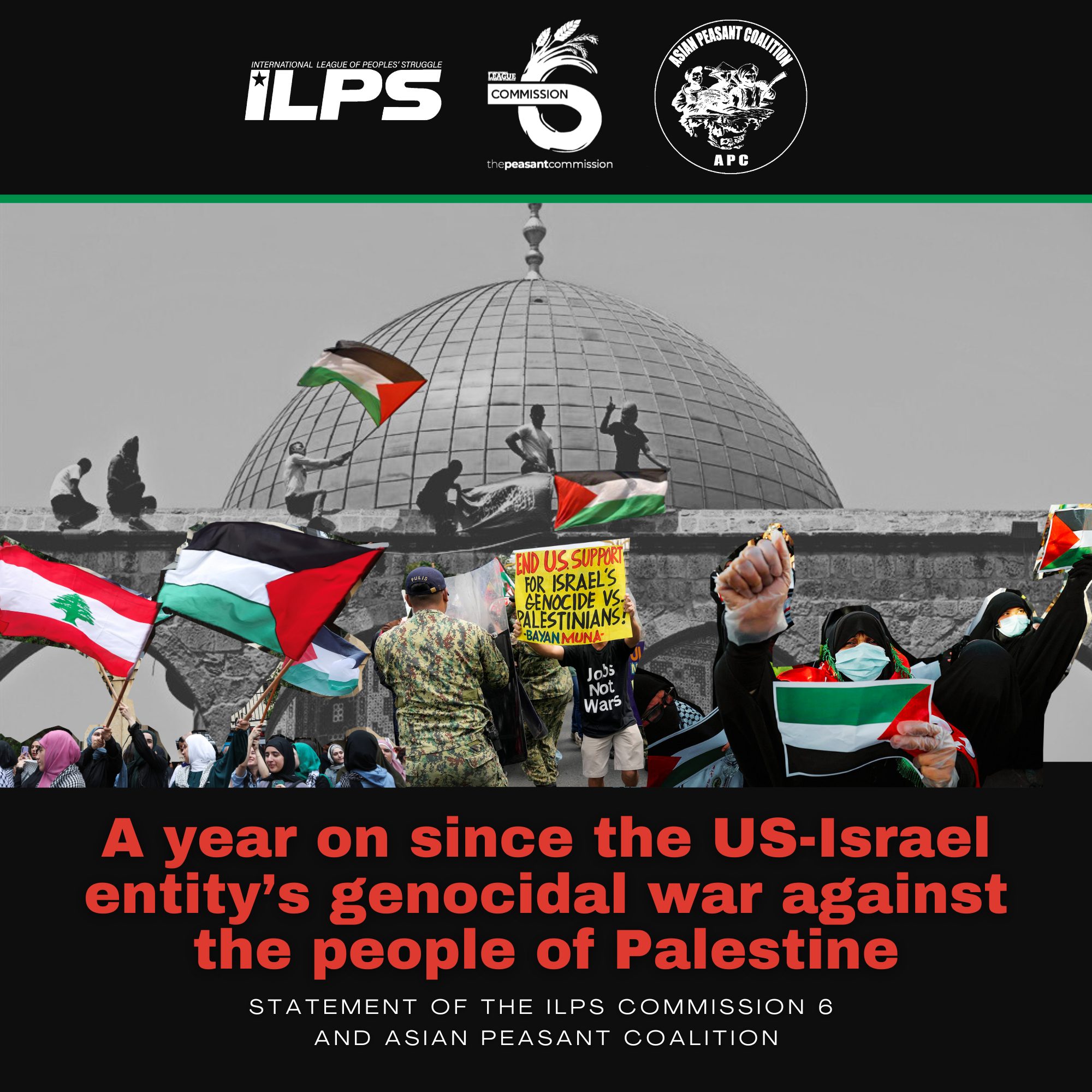
October is the Global Month of Solidarity with Peasants led by the ILPS Commission 6 (the Peasant Commission) in cooperation with the Asian Peasant Coalition and PAN Asia Pacific’s No Land No Life campaign.
As the world turns its focus to post-Covid recovery, big political institutions and IFIs, in cahoots with big transnational corporations, are pushing for recovery programs particularly on food and agriculture that will affect small food producers and the landless rural poor. Small food producers include landless agricultural workers whose labor rights, particularly to decent wages, decent living and working conditions, and to freedom of association are not recognized by those advocating neo-liberal policies. It includes the small fisherfolks who are now being banned from fishing in their local shores as big fishing vessels’ nets hoards even the smallest sea-creatures in their locality.
International financial institutions like the IMF-World-Bank and the Asian Development Bank are pushing their “resilient and green recovery” scheme, which is designed to prioritize loans that will further sink the economies of small recovering countries. They once again march in, with old-new neoliberal policies which are the main reason why countries are in this pit of a crisis.
In the Philippines for example, the World Bank is pushing its Support to Parcelization of Lands for Individual Titling or the SPLIT Project, which according to the World Bank and the Department of Agriculture, aims to improve land tenure security and stabilize property rights of agrarian reform beneficiaries (ARBs). It covers a total area of 1.368 million hectares with a total total project cost of Ph 24.625 billion. Seventy eight percent of the project are loan proceeds amounting to PhP 19.240 billion and 22% GOP counterpart amounting to PhP 5.385 billion.
For the peasant movement, this will only create a situation where land becomes a commodity amidst the infrastructure development projects. Second, with this scheme, collective titles become a negotiable instrument for the financial market where land can be easily sold as a collateral when farmers are pushed to emergency situations. The World Bank itself, in its correspondence with the Kilusang Magbubukid ng Pilipinas or the Peasant Movement of the Philippines said, that this will be the transition to a “modern” agricultural system geared towards expanding agribusiness – which also means that no support will come to the local production and peasant farmers and farmworkers will not benefit from it. Lastly, the market-assisted land reform imposed by the World Bank undermines the Filipino peasants struggle for genuine land reform as it poses a direct threat to the organized peasants, farmers and farmworkers’ collective cultivation efforts through the bungkalan or collective land cultivation areas.
These programs pushed by the IFIs are one and the same with the World Food Programme’s “new movement to transform food systems” with its corporate-led UN Food Systems Summit in 2021. It promotes the same poisons killing food systems then and now. Using new terms, it advocates the old principles of techno-fixing socio-economic problems and of market-assisted reforms.
Genuine sustainable efforts are on the ground. In the rural communities that have strengthened their solidarity and their struggle amid the pandemic and amid horrible state-perpetrated attacks. It is in their collective cultivation, or the seeds they have saved for generations. It is the indigenous irrigation systems that have sustained the farming practices of mountainous communities. It is in the new people-led local trades that were efforts to help one another during the pandemic. Ultimately, these small but sustainable efforts led by small food producers are affected. And as we continue our campaigns against these plunderous and anti-people solutions, our communities continuously push and assert their collective practices in land development, food production and environmental protection.
The struggle to uphold these rights are our farmers, landless peasants, indigenous peoples and agricultural workers’ immediate concern. It leads to their long-term aspiration of being a meaningful part of the struggle for agrarian reform and national development.
This year, the GMSP is designed to kick-off the year-long campaign of ILPS Commission 6 that brings together peasant organizations, networks, advocates, regional and global CSOs under the theme “Advance Peasant’s Rights and Food Sovereignty for Sustainable Food Systems”.
The GMSP features activities from the different peasant groups, land and food rights advocates and CSOs who are one with the landless peasants in their quest for sustainable food systems. This is being achieved through asserting people’s food sovereignty and peasant’s rights.
FEATURED ACTIVITIES:
-
October 15 International Rural Women’s Day
-
October 16 World Hunger Day
-
October 20 International Day of Peasant Repression
-
Mobilizations
-
Learning Exchanges/ Learning Festivals
-
Webinars/Forums
As culmination of the kick-off month of the campaign, the GMSP will hold a webinar on October 27, 7pm Manila time and will feature the people’s local campaigns and best practices in the campaign for sustainable food systems.
Speakers from Thailand, Philippines, Indonesia, India, Pakistan and Sri Lanka will join the webinar.
HOW YOU CAN JOIN
-
Inform us of any activity you would like to include in the month-long kick-off campaign.
-
Post details of the activities in your Facebook page and tag the ILPS Peasant Commission
WE CAN HELP PROMOTE YOUR ACTIVITIES!
Let us know the details so we can support you in the documentation, online promotion or media promotion.



